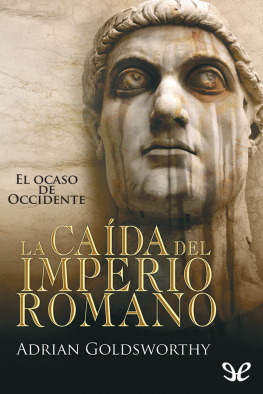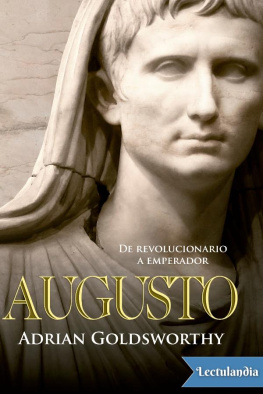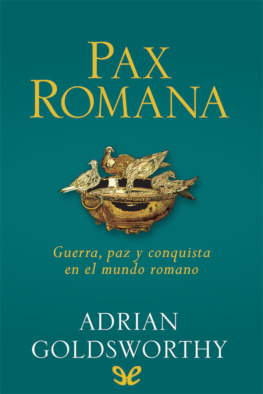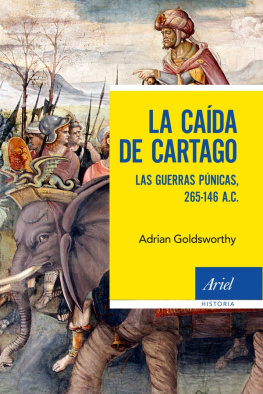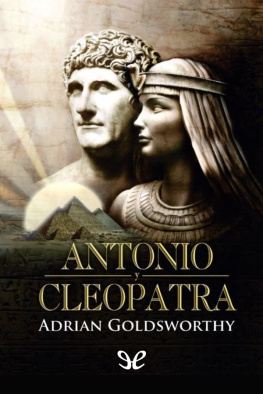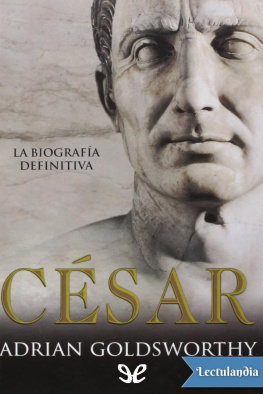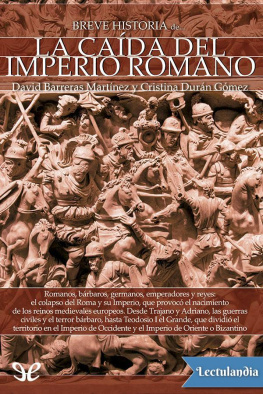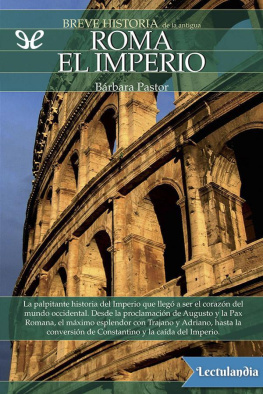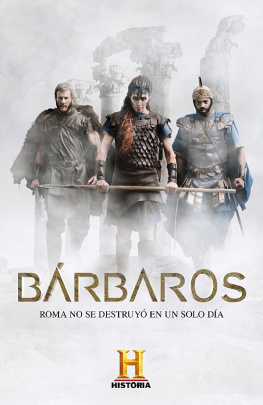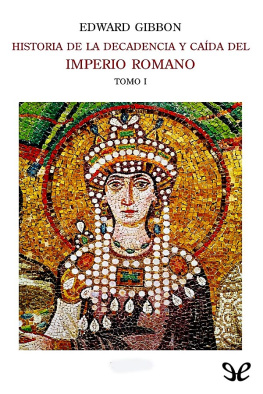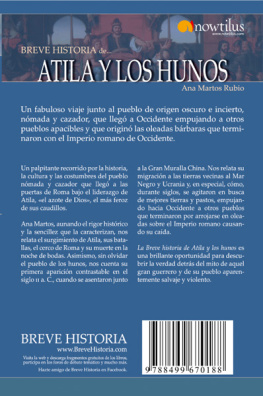En el año 476 d. C. Rómulo Augusto, el último emperador que gobernó en Roma, fue depuesto, sin oposición, por el bárbaro Odoacro. Este hito marcó el final definitivo, e incluso silencioso, de cinco siglos de dominación imperial. Fue la muerte anunciada por una larga decadencia que había empezado con Marco Aurelio, tres siglos antes, cuando Roma era aún la mayor superpotencia del mundo.
Adrian Goldsworthy —recurriendo a las fuentes originales y a las últimas investigaciones arqueológicas— nos presenta un relato estremecedor de la caída del Imperio romano. Un largo proceso que duró trescientos años en el que se vivieron el caos del siglo III, el cisma del IV o el colapso final en el V. En estas páginas cobran vida personajes fascinantes como Caracalla, Constantino, Teodosio, Alarico o Atila que comparten protagonismo con oscuras conjuras, sangrientas batallas, sorprendentes romances y muchos otros acontecimientos de la mano de uno de los mejores historiadores de la Antigüedad, que responde a algunas de las grandes preguntas de la historia universal: ¿cómo desapareció la superpotencia romana? ¿Cómo murió Occidente?

Adrian Goldsworthy
La caída del Imperio Romano
El ocaso de Occidente
ePub r1.0
Castroponce 12.11.14
Título original: The Fall of the West. The Death of the Roman Superpower
Adrian Goldsworthy, 2009
Traducción: Teresa Martín Lorenzo
Retoque de cubierta: Castroponce
Editor digital: Castroponce
ePub base r1.2


ADRIAN GOLDSWORTHY, doctor en Historia, estudió en el St Johns College de Oxford y ha enseñado en varias universidades. Entre sus libros, publicados a más de una docena de idiomas, cabe destacar The roman Army at War, Roman Warfare, Las guerras Púnicas, Cannae, Grandes generales del ejército romano, César, La caída del Imperio romano, Antonio y Cleopatra y la novela histórica Soldados de honor estos cuatro últimos publicados con gran éxito en La Esfera. Dedicado exclusivamente a la escritura, en la actualidad colabora en documentales televisivos sobre temas romanos y es profesor visitante en la Universidad de Newcastle.
BIBLIOGRAFÍA
E n el libro se citan con frecuencia tres volúmenes de la Cambridge Ancient History, abreviada como CAH2. Son los siguientes:
Bowman, A., Garnsey, P. y Cameron, A. (eds.), The Cambridge Ancient History, 2a ed., vol. XII: The Crisis of Empire, AD. 193-337, Cambridge University Press, 2005.
Cameron, A. y Garnsey, P. (eds.), The Cambridge Ancient History, vol. XIII: The Late Empire, AD. 337-425, Cambridge University Press, 1998.
Cameron, A., Ward-Perkins, B. y Whitby, M. (eds.), The Cambridge Ancient History, vol. XIV: Late Antiquity: Empire and Successors, AD. 425-600, Cambridge University Press, 2000.
Adams, J., «The Poets of Bu Njem: Language, Culture and Che centurionate», Journal of Roman Studies, 89, 1999, pp. 109-134.
Alfödy, G. (trad. A. Birley), Noricum, Londres, 1974.
—, «The Crisis of the Third Century as Seen by Contemporaries», Greek, Roman, and Byzantine Studies, 15, 1974, pp. 89-111.
Alston, R., Soldier and Society in Roman Egypt, Londres y Nueva York, 1995.
Amory, P., People and Identity in Ostrogothic Italy, 489-554, Cambridge University Press, 1997.
Austin, N., Ammianus on Warfare: an Investigation into Ammianus’ Military Knowledge, Collection Latomus 165, Bruselas, 1979.
— y Rankov, B., Exploratio: Military and Political Intelligence in the Roman World from the Second Punic War to the Battle of Adrianople, Londres y Nueva York, 1995.
Baatz, D., «Cuiculus-Zur Technik der Unterminierung antiker Wehrbauten», en E. Schallmayer, Niederbieder, Postumas und der Limesfall, Hamburgo, 1996, pp. 84-89.
Bagnall, R. y Frier, B., The Demography of Roman Egypt, Cambridge University Press, 1994.
Balty, J. y Van Rengen, W., Apamea in Syria: The Winter Quarters of Legio II Parthica, Bruselas, 1993.
Banaji, J., Agrarian Change in Late Antiquity: Gold, Labour, and Aristocratic Dominance, Oxford, 2001.
Bar, D., «Was There a 3rd-C. Economic Crisis in Palestine?», en J. Humphrey (ed.), The Roman and Byzantine Near East, vol. 3: Journal of Roman Archaeology Supplementary Series 49, 2002, pp. 43-54.
Barbero, A. (trad. Clara Orlandi), El día de los bárbaros. La batalla de Adrianópolis, 9 de agosto de 387, Ariel, Barcelona, 2007 (original: 9 agosto 378. Il giorno dei barbari).
Barnes, T., «Legislation Against the Early Christians», Journal of Roman Studies, 58, 1968, pp. 32-50.
—, Constantine and Eusebias, Cambridge, Massachusetts, 1981.
—, The New Empire of Diocletian, Harvard University Press, Cambridge, Massachusetts, 1982.
—, «Constantine and the Christians of Persia», Journal of Roman Studies, 75, 1985, pp. 126-136.
—, Athanasius and Constantius: Theology and Politics in the Constantinian Empire, Harvard University Press, Cambridge, Massachusetts, 1993.
—, Ammianus and the Representation of Historical Reality, Cornell University Press, Ithaca, 1998.
Barnwell, P, Emperors, Prefects and Kings: The Roman West, 395-565, University of North Carolina Press, 1993.
Beloch, K., Die Bevölkerung de Griechisch-Römischen Welt, Leipzig, 1886.
Bell, H., Martin, V., Turner, E. y Van Berchem, D. (eds.), The Abinnaeus Archive: Papers of a Roman Officer in the Reign of Constantius II, Oxford, 1964.
Bellinger, A., Brown, E, Perkins, A. y Wells C. (eds.), The Excavations at Dura-Europos. Final Report VIII, Part I: The Synagogue, New Haven, 1956.
Berchman, R., Porphyry Against the Christians, Leiden, 2005 (versión en castellano: Porfirio de Tiro. Contra los cristianos, recopilación de fragmentos, traducción, introducción y notas) [castellano-griego-latín] Ramos Jurado, Universidad de Cádiz, Cádiz, 2006).
Birley, A., «The Economic Effects of Roman Frontier Policy», en A. King y M. Henig (eds.), The Roman West in the Third Century, BAR, 109, 1981, p. 40.
—, Marcus Aurelias (ed. rev. New Haven, 1987).
—, Septimius Severuss: the African Emperor, Londres, 1988.
—, The Roman Government of Britain, Oxford University Press, Oxford, 2005.
Birley, E., The Roman Army, Amsterdam, 1988.
Bishop, M. y Coulston, J., Roman Military Equipment from the Punic Wars to the Fall of Rome, 2a ed., Londres, 2006.
Blockley, R., East Roman Foreign Policy: Formation and Conduct from Diocletian to Anastasius, Londres, 1992.
Boak, A., Manpower Shortage and the Fall of the Roman Empire in the West, Michigan y Oxford, 1955.
Bowersock, G. Julian the Apostate, Harvard University Press, 1978.
Bowman, A. y Thomas, J. (eds.), The Vindolanda Tablets (Tabulae Vindolandenses II), British Museum Press, Londres, 1994.
Bradford Welles, C., The Excavations at Dura-Europos. Final Report VIII, part 2: The Christian Building

